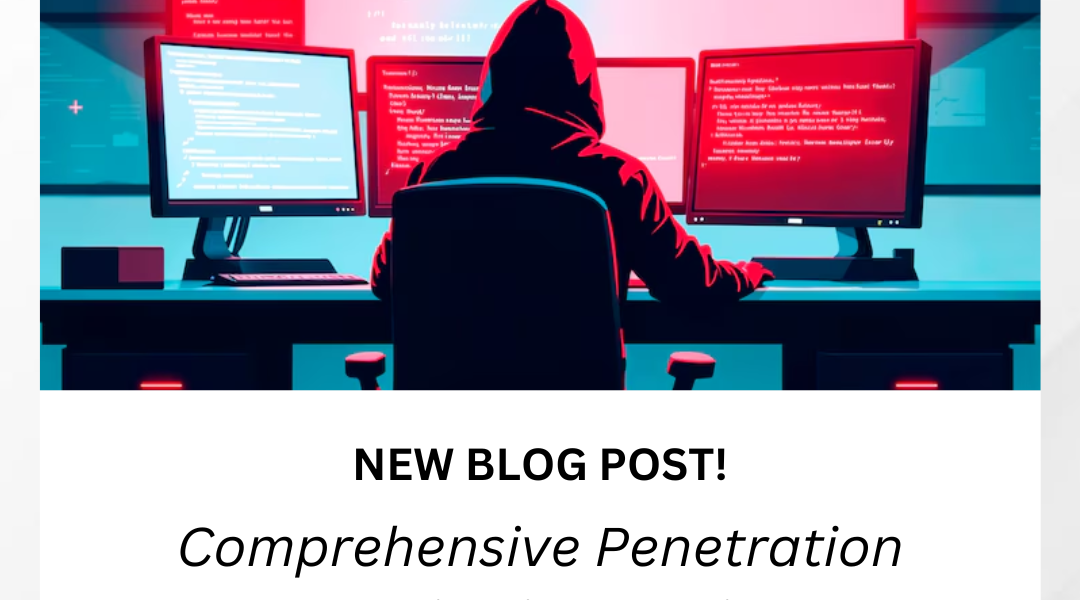In today’s digital age, cybersecurity has become an increasingly critical concern for businesses of all sizes. However, small and medium-sized enterprises (SMEs) often find themselves particularly vulnerable to cyber threats due to their limited resources and infrastructure. This blog post will delve into the importance of cybersecurity for SMEs, common threats, best practices, and practical steps to protect your business.
Understanding the Threats
SMEs are attractive targets for cybercriminals due to several factors:
- Lack of resources: SMEs may have limited IT budgets and staff, making it difficult to implement robust security measures.
- Vulnerable infrastructure: Older systems and outdated software can be more susceptible to attacks.
- Limited awareness: SMEs may not be fully aware of the latest cybersecurity threats and best practices.
Common cyber threats faced by SMEs include:
- Ransomware: Malicious software that encrypts data and demands a ransom for its release.
- Phishing: Attempts to trick individuals into revealing sensitive information through fraudulent emails or websites.
- Malware: Malicious software designed to harm computer systems or steal data.
- Data breaches: Unauthorized access to sensitive information.
The High Cost of Cyberattacks
The consequences of a cyberattack can be devastating for an SME. These include:
- Financial loss: Costs associated with data breaches, downtime, and legal expenses.
- Reputational damage: Loss of customer trust and business relationships.
- Operational disruption: Interruption of business processes and productivity.
- Regulatory fines: Non-compliance with data protection regulations can result in hefty fines.
Essential Cybersecurity Measures
To protect your SME from cyber threats, it’s essential to implement a comprehensive cybersecurity strategy. Here are some key measures to consider:
1. Employee Training
- Educate your employees about cybersecurity threats and best practices.
- Conduct regular training sessions to keep them informed about the latest threats.
- Encourage employees to report any suspicious activity.
2. Strong Password Management
- Use complex, unique passwords for all accounts.
- Avoid using easily guessable information like birthdays or pet names.
- Consider using a password manager to securely store and manage passwords.
3. Regular Software Updates
- Keep all software and operating systems up-to-date with the latest security patches.
- Use automatic update features to ensure timely updates.
4. Data Encryption
- Encrypt sensitive data both at rest and in transit.
- Use strong encryption algorithms and secure protocols.
5. Backup and Recovery
- Regularly back up your data to a secure location.
- Test your backup procedures to ensure they work as intended.
- Have a disaster recovery plan in place to restore your systems and data in case of a breach.
6. Firewall Protection
- Use a firewall to block unauthorized network access.
- Regularly update and configure your firewall to protect against the latest threats.
7. Multi-Factor Authentication
- Require multiple forms of verification for logins, such as a password and a code sent to a mobile device.
- This adds an extra layer of security and makes it more difficult for hackers to gain unauthorized access.
8. Incident Response Planning
- Develop a plan to respond to and recover from cyberattacks.
- Appoint a team responsible for incident response and ensure they are trained on the plan.
9. Consider Managed IT Services
- Partner with a cybersecurity expert to provide professional guidance and support.
- Managed IT services can help you implement and manage security measures, saving you time and resources.
Beyond Basic Measures
In addition to the essential measures outlined above, there are several other strategies that SMEs can implement to enhance their cybersecurity:
- Zero-Trust Network Access (ZTNA): Grant access to resources based on user identity and device trust.
- Threat intelligence: Stay informed about emerging threats and vulnerabilities.
- Security information and event management (SIEM): Monitor network activity for suspicious behavior.
- Data loss prevention (DLP): Prevent sensitive data from being copied, transferred, or shared without authorization.
The Importance of Cybersecurity
Cybersecurity is not just about protecting your data; it’s about protecting your entire business. A strong cybersecurity posture can prevent financial loss, reputational damage, and operational disruption. By implementing these measures and staying vigilant, you can shield your SME from the ever-evolving threat landscape.
Conclusion
In today’s digital world, cybersecurity is a critical concern for SMEs. By understanding the threats, implementing effective security measures, and staying informed about best practices, you can protect your business from cyberattacks and ensure its long-term success.


